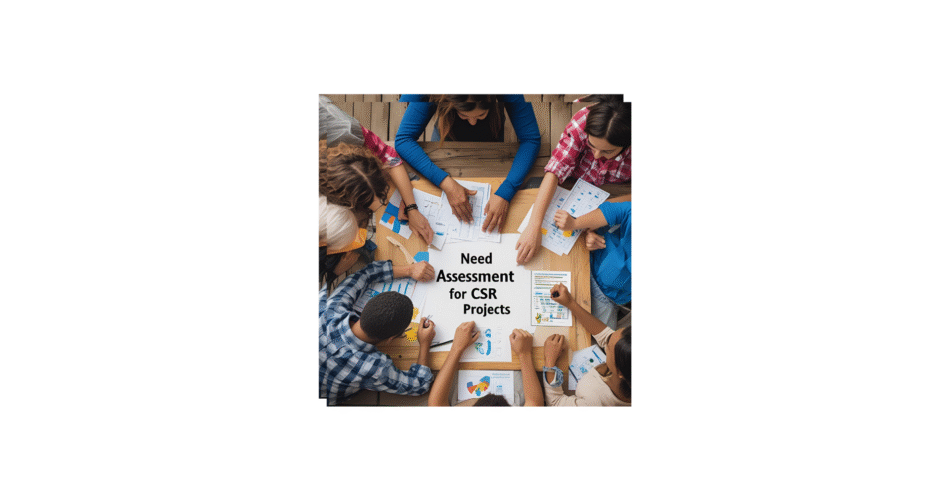In the realm of Corporate Social Responsibility (CSR), good intentions are not enough. For a CSR project to be truly impactful, it must address a real, measurable need within a target community. This is where Need Assessment plays a vital role—it ensures that the CSR initiative is both relevant and effective.
What is a Need Assessment?
A need assessment is a systematic process used to determine and understand the needs, gaps, challenges, and opportunities within a particular community or beneficiary group. For CSR projects, this process helps organizations identify:
- Who needs help?
- What are their most pressing problems?
- What resources are already available?
- Where can the organization contribute most effectively?
Why it Matters for CSR
Conducting a proper need assessment offers several key benefits:
- Community-Centric Planning
A well-done assessment puts the focus on the community, not the corporate agenda. It prevents misalignment between what a company wants to offer and what the community actually needs. - Resource Optimization
It ensures that funds, time, and human resources are not wasted on ineffective or irrelevant initiatives. - Increased Impact
Programs based on actual data tend to be more sustainable, measurable, and meaningful. - Stakeholder Engagement
Engaging communities in the process fosters trust and creates a sense of ownership among beneficiaries.
Methods Used in Need Assessments
CSR consultants and project designers typically use a combination of quantitative and qualitative research methods, such as:
- Surveys and questionnaires
- Focus group discussions
- Field visits and community meetings
- Secondary data analysis
- Interviews with local leaders and NGOs
These methods help gather both factual data and human insights that shape the final project strategy.
More Visit us : Need Assessment For CSR Project
Real-World Example
For instance, before launching a healthcare initiative in a rural district, a company might conduct a need assessment to understand existing health services, disease prevalence, and barriers to access. The findings might reveal that mobile health clinics are more needed than building a new facility. This insight can drastically improve the outcome of the CSR project.
Conclusion
A need assessment is not just a procedural formality—it’s the foundation for successful CSR planning. Companies serious about delivering meaningful change must invest time and resources into understanding the communities they serve. It’s the bridge between corporate capability and social responsibility.
